Introduction
Nestled at the foot of the Vitosha Mountain, Sofia, the capital of Bulgaria, is a city that effortlessly blends its rich history with a vibrant modern atmosphere. From ancient Roman ruins to lively markets and a burgeoning cultural scene, Sofia has something to offer every traveler. Here’s a comprehensive city guide to help you make the most of your visit:
Historical Landmarks
Alexander Nevsky Cathedral
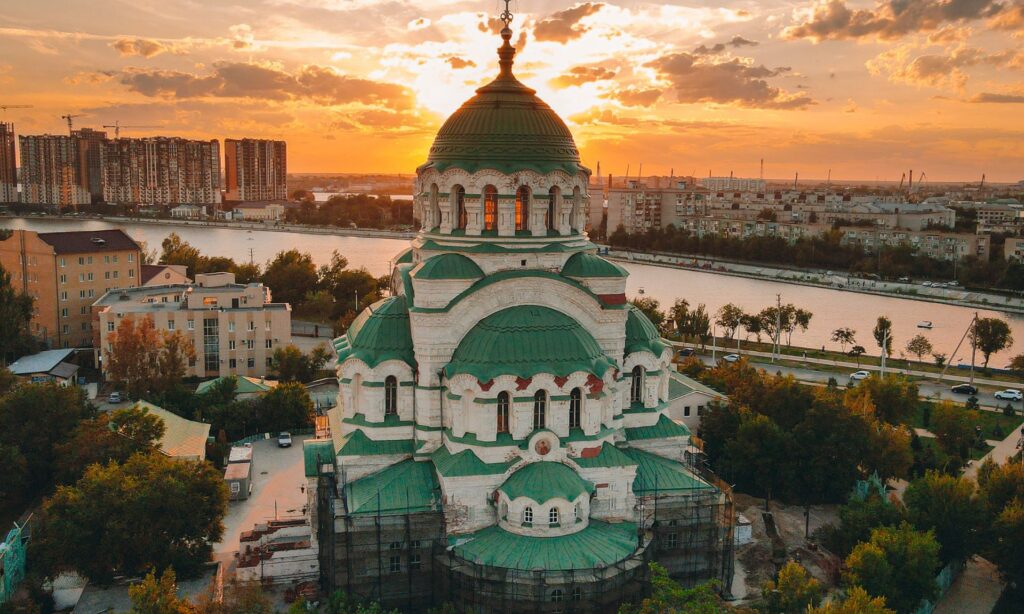
Marvel at the stunning gold-domed Alexander Nevsky Cathedral, one of the largest Orthodox cathedrals in the world. Admire its intricate frescoes and icons, and don’t forget to explore the adjacent square where you’ll find the Monument to the Unknown Soldier.
READ ALSO: Exploring Bulgaria on a Budget: Top 5 Affordable Cities
Sofia’s Roman Heritage:
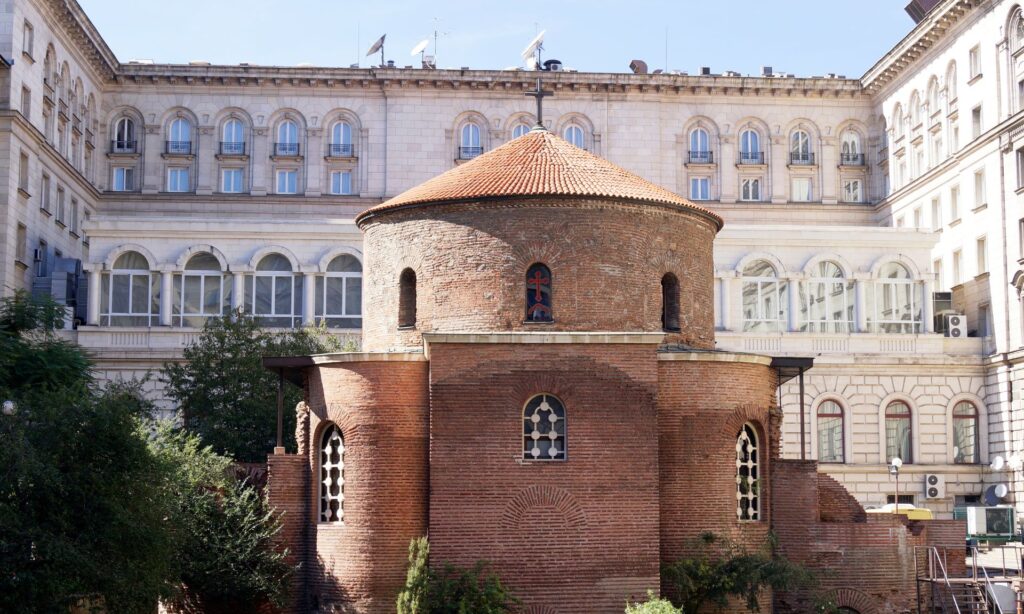
Visit Serdica Archaeological Complex, where you can walk on transparent floors over the excavations of the ancient Roman city of Serdica. The Rotunda of St. George, a red-brick building that has served as a mausoleum, church, and mosque, is another fascinating historical site.
National Palace of Culture:
Experience modern Bulgarian architecture at the National Palace of Culture. This massive complex hosts concerts, exhibitions, and events throughout the year. The nearby South Park is perfect for a leisurely stroll.
Cultural Hotspots:
National Art Gallery
Immerse yourself in Bulgarian art at the National Art Gallery housed in the former royal palace. The collection spans from medieval religious art to contemporary works, providing a comprehensive overview of Bulgaria’s artistic heritage.
Ivan Vazov National Theater:
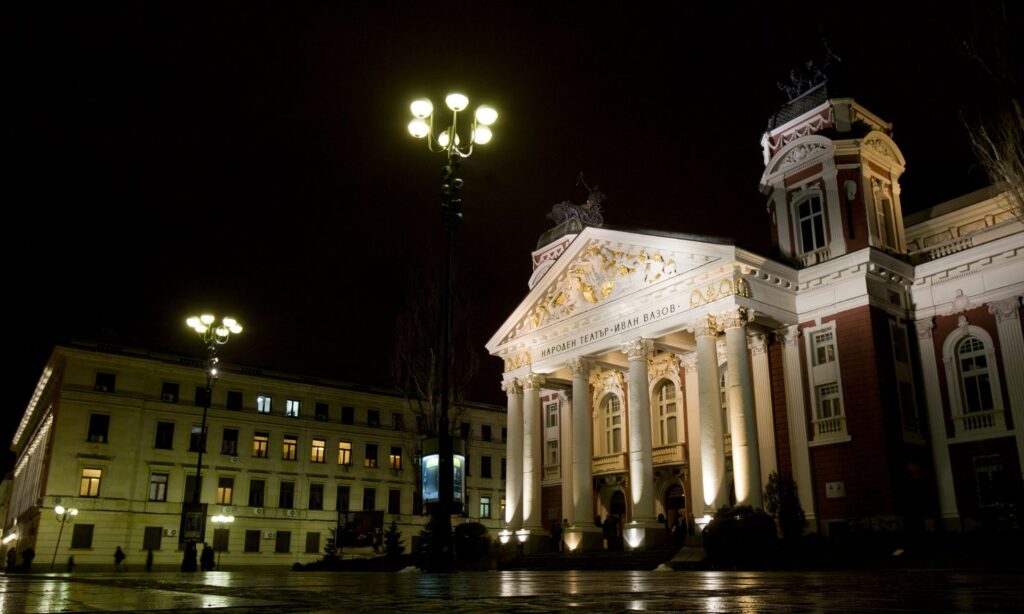
Catch a performance at the Ivan Vazov National Theater, Bulgaria’s oldest and most prestigious theater. The stunning Neo-Baroque building is an architectural gem, and its productions showcase the country’s rich theatrical traditions.
National Museum of History:
Gain insight into Bulgaria’s past at the National Museum of History, home to a vast collection of artifacts, including Thracian treasures, medieval manuscripts, and items from the communist era.
Vibrant Markets
Sofia Central Market Hall:
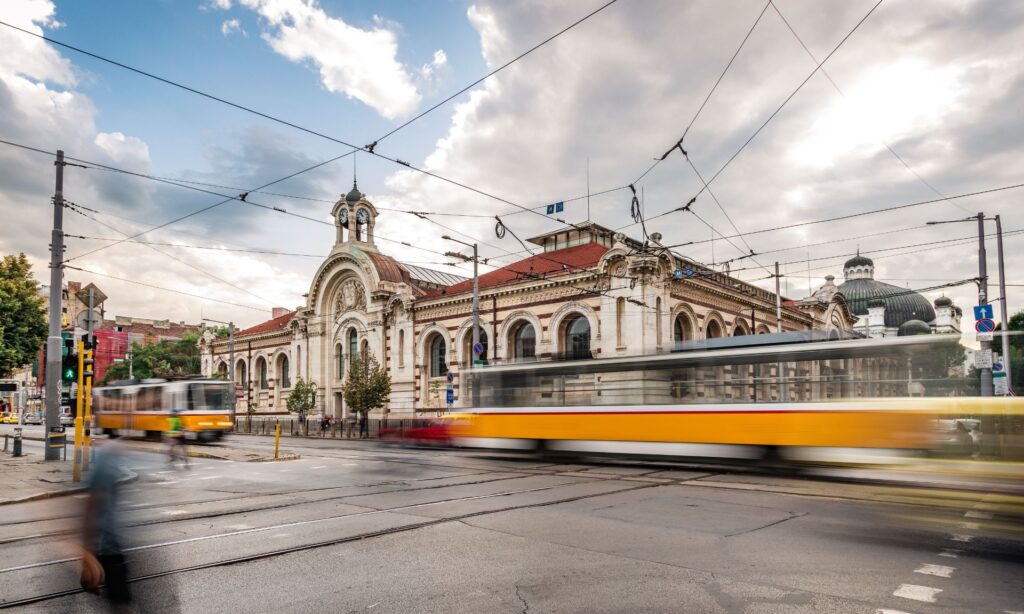
Explore Sofia’s Central Market Hall, a bustling market where you can sample local produce, traditional Bulgarian snacks, and handmade crafts. It’s an excellent place to get a taste of the local flavors.
Vitosha Boulevard:
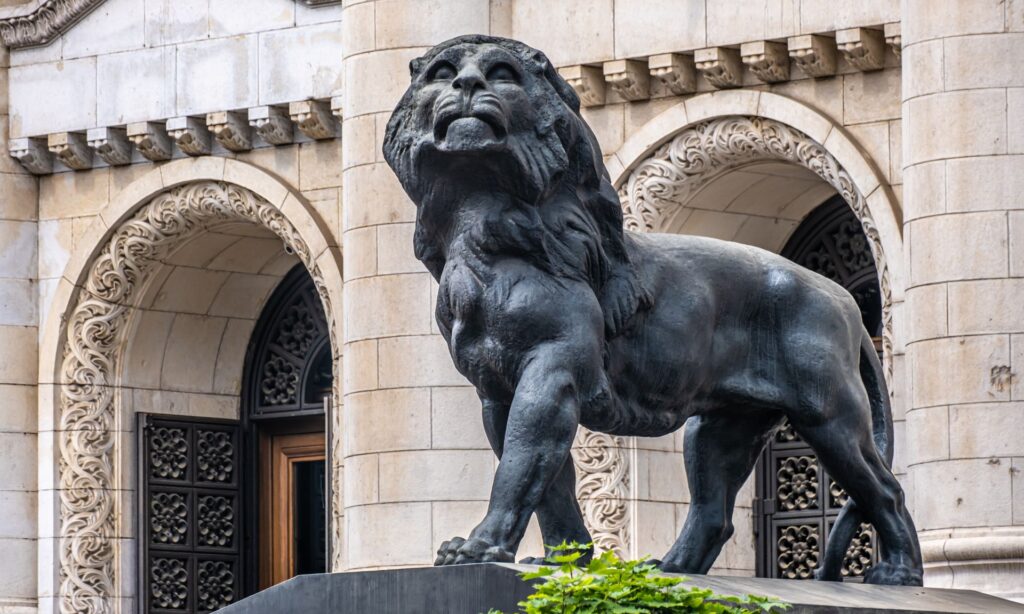
Stroll down Vitosha Boulevard, Sofia’s main shopping street, lined with shops, cafes, and restaurants. It’s the perfect spot for both shopping and people-watching.
Nature and Recreation
Vitosha Mountain:
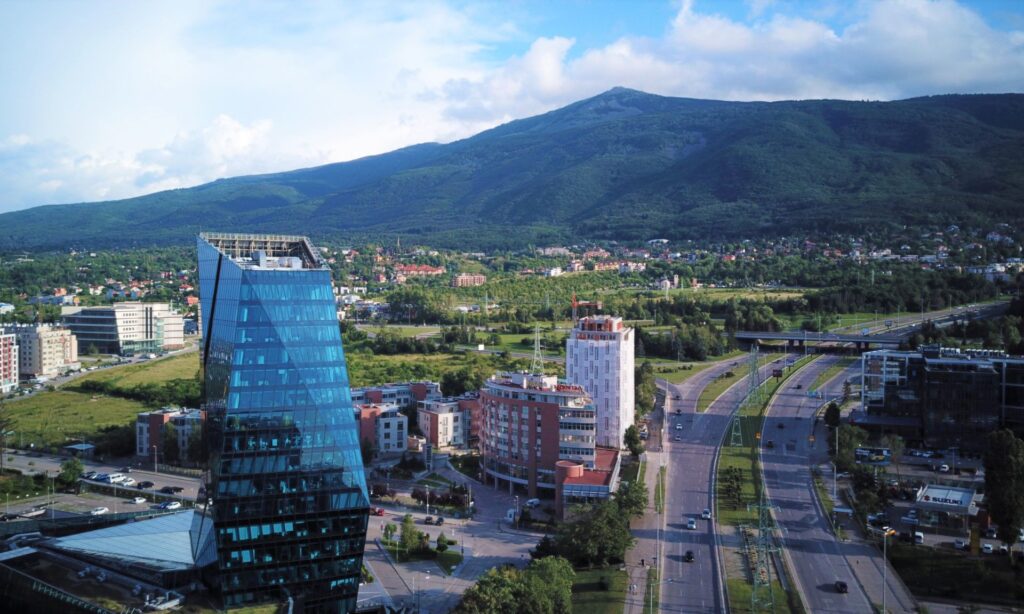
For outdoor enthusiasts, a trip to Vitosha Mountain is a must. Whether you’re hiking in the summer or skiing in the winter, the mountain offers breathtaking views of Sofia and its surroundings.
Borisova Gradina Park:
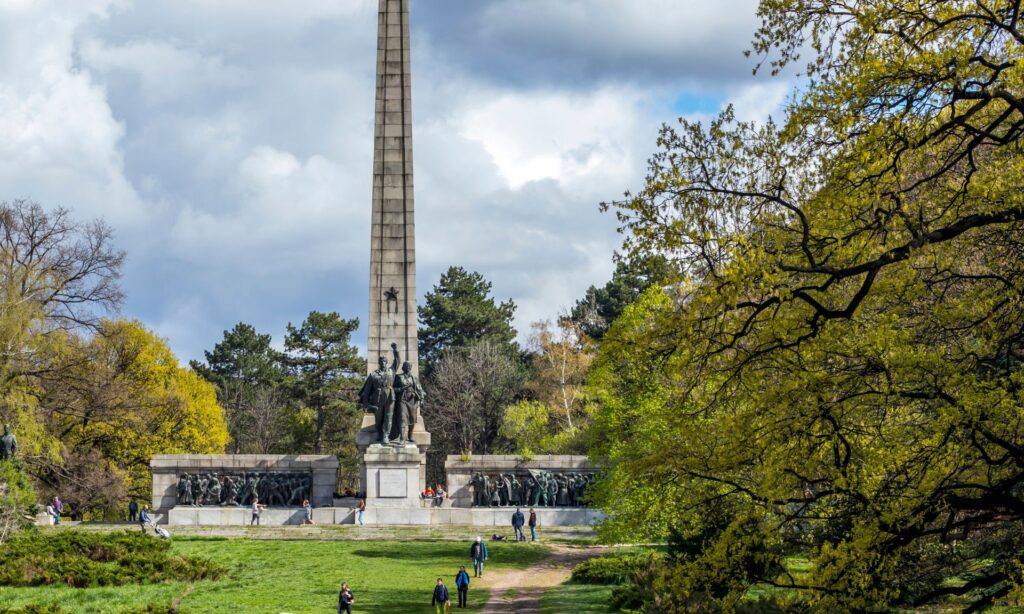
Enjoy a leisurely day at Borisova Gradina Park, a vast green space in the heart of Sofia. The park is perfect for picnics, jogging, or simply relaxing amidst nature.
Culinary Delights

Rakia and Shopska Salad:
Indulge in traditional Bulgarian cuisine by trying rakia, a strong fruit brandy, and savoring a refreshing Shopska salad, a delightful mix of tomatoes, cucumbers, peppers, and feta cheese.
Vegan and Vegetarian Options:
Sofia is also becoming known for its diverse culinary scene, including an array of vegan and vegetarian options. Explore the trendy neighborhoods of Lozenets and Oborishte for hip cafes and innovative eateries.
Sofia, Bulgaria, with its blend of history, culture, and modernity, offers a unique experience for every visitor. Whether you’re interested in exploring ancient ruins, enjoying cultural performances, or simply savoring local cuisine, Sofia has something to enchant and captivate every traveler.
Frequently Asked Questions About Sofia, Bulgaria:
1. Q: What is the best time to visit Sofia?
A: The ideal time to visit Sofia is during the spring (April to June) or fall (September to October) when the weather is mild, and outdoor activities are enjoyable. Summers can be warm, attracting tourists, while winters offer a snowy landscape, perfect for winter sports enthusiasts.
2. Q: How can I get around Sofia?
A: Sofia has a well-developed public transportation system, including buses, trams, and the metro. Taxis are also readily available and relatively affordable. Many attractions are within walking distance in the city center, making it convenient for pedestrians.
3. Q: What currency is used in Sofia?
A: The currency used in Sofia, and throughout Bulgaria, is the Bulgarian Lev (BGN). It’s advisable to exchange currency at banks or authorized exchange offices for the best rates.
4. Q: Is English widely spoken in Sofia?
A: While Bulgarian is the official language, English is commonly spoken in tourist areas, hotels, and restaurants. Learning a few basic Bulgarian phrases, however, is always appreciated by the locals.
5. Q: What are the must-try Bulgarian dishes in Sofia?
A: Don’t miss trying traditional Bulgarian dishes like Shopska salad, banitsa (a pastry filled with cheese), kavarma (slow-cooked meat and vegetables), and, of course, rakia—a popular fruit brandy.
6. Q: Are credit cards widely accepted in Sofia?
A: Credit cards are widely accepted in most hotels, restaurants, and shops in Sofia. However, it’s advisable to carry some cash for smaller establishments and markets.
7. Q: What are the best day trips from Sofia?
A: Consider taking day trips to the Rila Monastery, Plovdiv (one of Europe’s oldest cities), or the Vitosha Mountain for outdoor activities. Each offers a unique experience and is easily accessible from Sofia.
8. Q: Is Sofia a safe city for tourists?
A: Sofia is generally considered safe for tourists. Like any other city, it’s advisable to stay vigilant in crowded areas and take normal precautions with personal belongings.
9. Q: Are there any cultural etiquette tips for visitors?
A: Bulgarians are known for their hospitality. It’s customary to greet with a handshake, remove shoes when entering someone’s home, and avoid pointing your feet at others. Tipping in restaurants is common, usually around 10-15% of the bill.
10. Q: What cultural events are held in Sofia throughout the year?
A: Sofia hosts various cultural events, including the Sofia International Film Festival, Sofia Music Weeks, and numerous art exhibitions. Check the city’s events calendar to coincide your visit with these cultural highlights.
Visiting Sofia promises a rich cultural experience, and being prepared with these frequently asked questions will help ensure a smooth and enjoyable trip to this vibrant European capital.
Conclusion: Exploring the Charms of Sofia, Bulgaria
In conclusion, Sofia, Bulgaria, stands as a captivating destination that seamlessly weaves together its rich historical tapestry with the vibrancy of modern life. From ancient Roman ruins to contemporary cultural offerings, the city offers a diverse range of experiences for every traveler.
The historical landmarks, such as the awe-inspiring Alexander Nevsky Cathedral and the remnants of the Roman city in the Serdica Archaeological Complex, showcase Sofia’s deep-rooted past. These sites not only tell the story of Bulgaria’s history but also provide a visual feast for architecture and history enthusiasts.
Cultural hotspots like the National Art Gallery and the Ivan Vazov National Theater offer a glimpse into Bulgaria’s artistic soul, spanning centuries of creativity. Meanwhile, the city’s markets, especially the bustling Sofia Central Market Hall and Vitosha Boulevard, provide a taste of local life, with an array of traditional foods and crafts.
For nature lovers, the proximity of Vitosha Mountain and the green expanses of Borisova Gradina Park offer a refreshing escape, whether you prefer hiking, skiing, or simply unwinding amidst nature.
Culinary delights in Sofia are an adventure in themselves, with traditional dishes like Shopska salad and rakia providing a delectable introduction to Bulgarian flavors. The city’s culinary scene is evolving, offering diverse options, including vegan and vegetarian choices for the more health-conscious traveler.
Navigating Sofia is made easy with a well-connected public transportation system, and the city’s friendly atmosphere, coupled with English being widely spoken, ensures a welcoming experience for visitors.
Whether you’re drawn to Sofia for its historical treasures, cultural offerings, outdoor activities, or culinary delights, this city promises an unforgettable journey. As you explore its streets, engage with its history, and savor its flavors, you’ll find that Sofia is not just a destination; it’s an immersive experience that leaves an indelible mark on every traveler fortunate enough to discover its charms.
In another related article, Budget Travel Guide to Bulgaria: Requirements for US and Non-US Visitors






